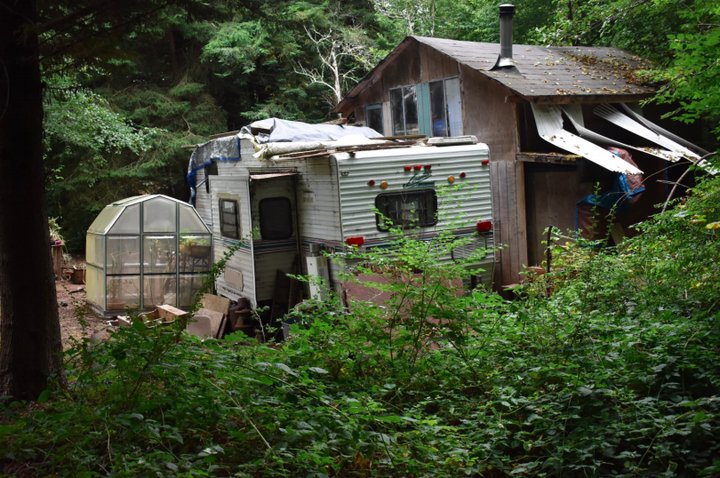
The property at 473 Quarry Road, just east of Trinidad, hosts multiple un-permitted residences, including makeshift structures and broken-down vehicles. | Photos via a Humboldt County inspection report.
###
Over the past 20 years, an untold number of people have lived in the assorted homes, broken-down vehicles and “hippie-rigged” structures scattered across “Yee Haw,” a longstanding commune, of sorts, nestled in the forest east of Trinidad.
A couple of former residents called in to Tuesday’s Board of Supervisors meeting to defend the property’s owner, Charles Garth.
“He has provided a service for people who couldn’t have found housing otherwise,” one woman said.
Another said she lived there when her son was a toddler and it was the only place she could afford. “That gave us an opportunity to stay in the area,” she said. “We were really poor.”
She’s now a homeowner with a good job in Arcata, she said, “and I know of several friends who can say the same thing. Charles gave us our start.” She argued that with the lack of affordable housing here in Humboldt, the county should be helping Garth, not punishing him.
County staff, however, say that Garth’s property has been an ongoing nuisance to neighbors and a danger to its residents and the environment. They presented documents to the board outlining a history of inspection warrants, abatement notices and a prolonged administrative battle that wended its way through the courts.
A collection of undated photos submitted to the board (some of which are included in this post) depict many of the violations, including un-permitted residences, corroded junk vehicles, exposed electrical wiring, disconnected plumbing, piles of discarded garbage and unapproved outhouse toilets. Several of the photos are labeled “Hazardous and Insanitary Conditions.”
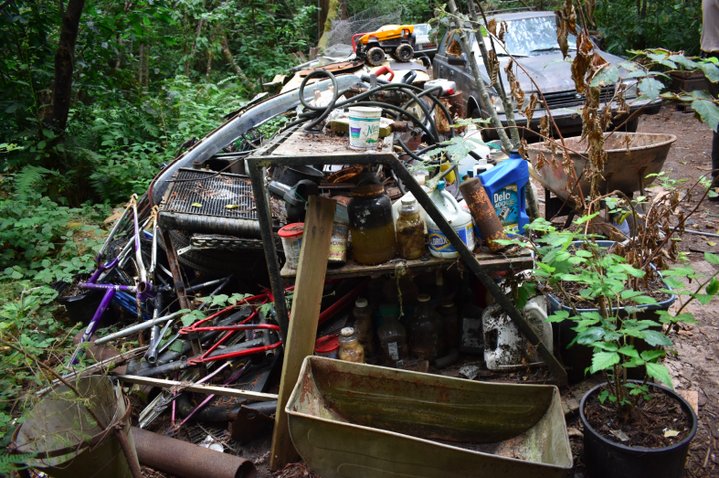
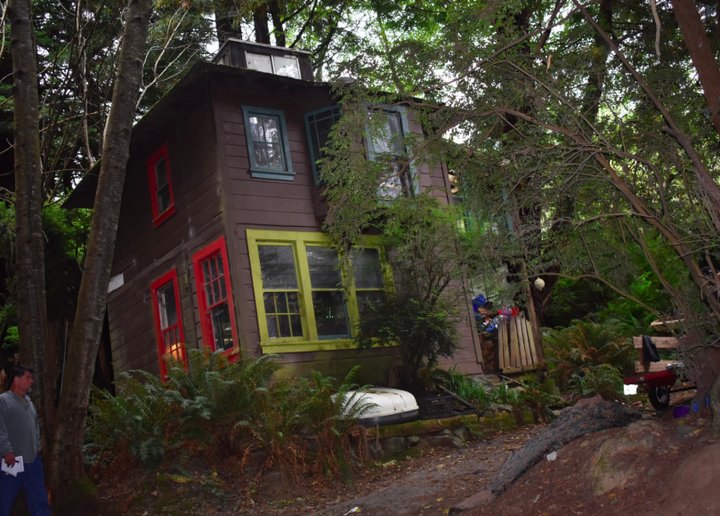
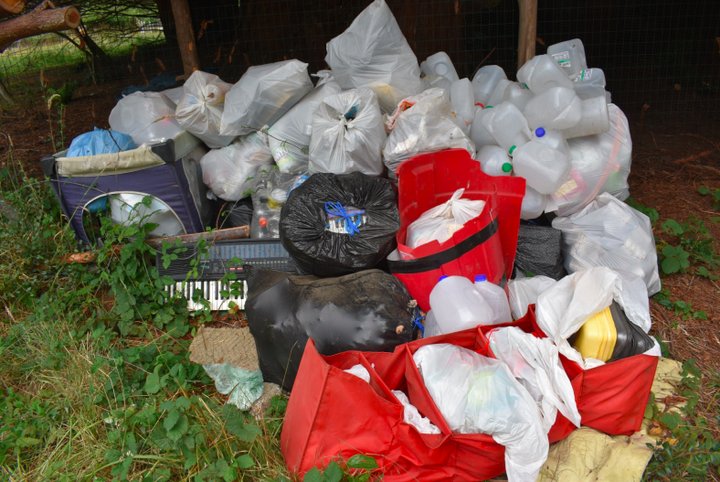
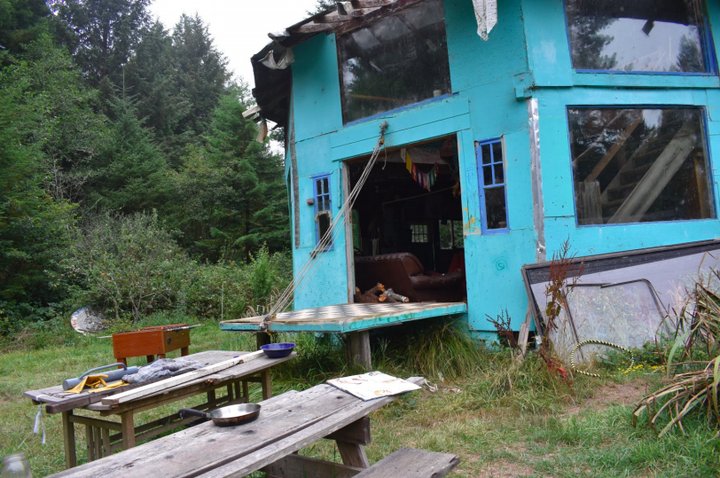
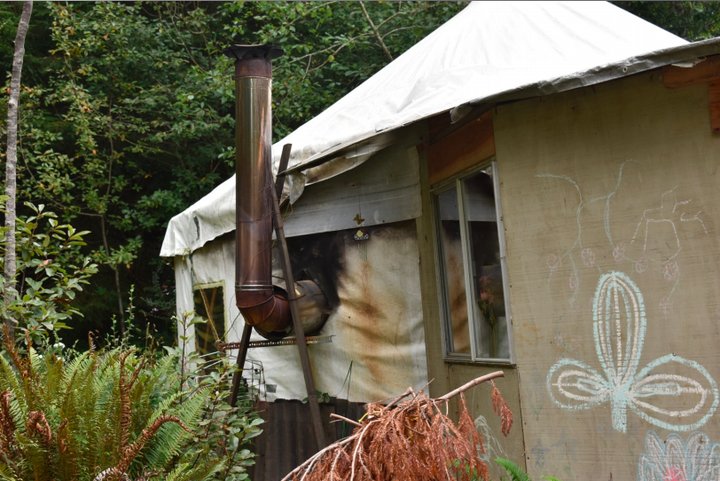
###
After deliberating and hearing from the public, including Garth himself, the Board of Supervisors voted 4-1, with Fifth District Supervisor Steve Madrone dissenting, to approve a civil penalty of more than $62,000 against Garth.
The matter was on the board’s consent calendar, but Madrone pulled it for discussion.
“My concern,” he said, “is that when we levy large fines, does the property owner walk away, leaving us with the nightmare of the mess?”
John Ford, the county’s planning and building director, said the problems at the parcel date back to 2001. (Former North Coast Journal reporter Heidi Walters wrote an in-depth story about the pitched battle in 2008.) A settlement agreement was reached in 2009, with Garth agreeing to apply for permits and reduce the number of housing structures to two, but Ford said he never followed through.
“At this point, all avenues for the property owner have expired,” he said. “This may end up with us taking abatement action.” The county tries to avoid that outcome, but in this case, Ford said, the property owner has continued to appeal all enforcement actions, leaving no other options.
Madrone spoke up again, saying the lack of housing, both locally and statewide, should be considered. “The landowner, in many ways, was just trying to supply housing to people,” Madrone said, and he went on to recount his own family’s time living off-the-grid near Honeydew.
“We were poor,” he said. “We lived in a wikiup and had a pit privy.” He argued that until the county allows for alternative sewage disposal systems, such as waterless toilets, we’ll continue to lose housing opportunities.
“That being said,” Madrone continued, “this [situation] went way beyond. … There’s really no choice here.”
First District Supervisor Rex Bohn said he was glad to hear that Madrone had an environmentally correct privy in Honeydew, but the conditions on Garth’s property are simply unsanitary.
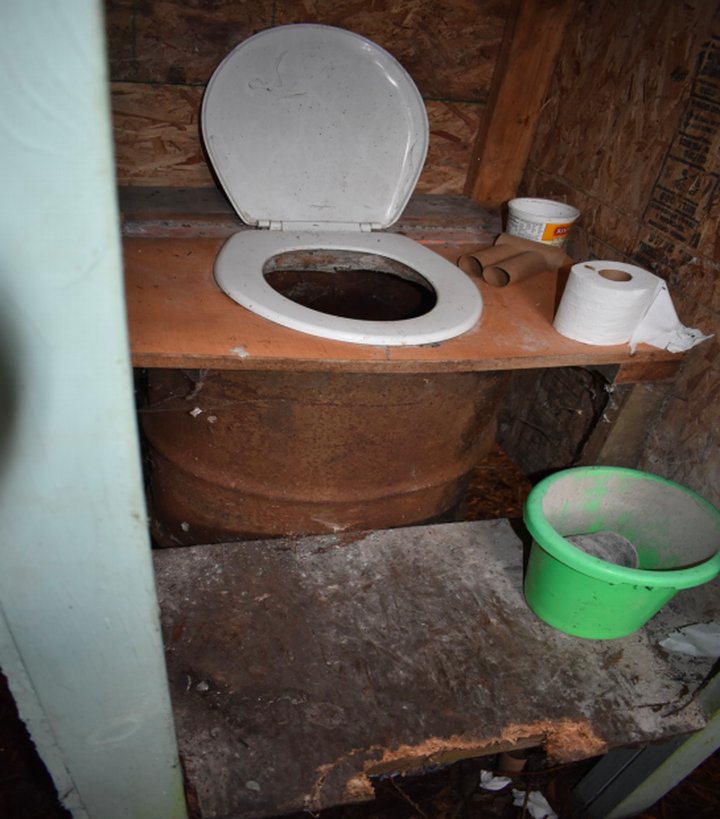

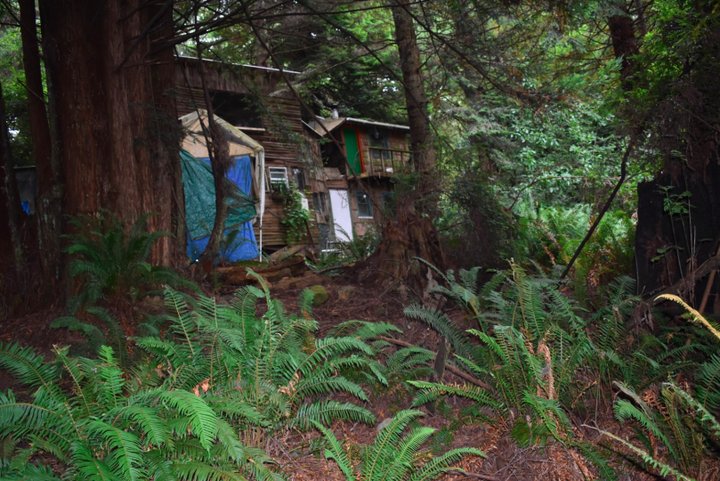
###
During the public comment period, it wasn’t just former residents who spoke up for Garth. SoHum resident Tom Grover accused Ford of misrepresenting the facts. He said the photos and the county’s narrative don’t reflect Garth’s recent cleanup efforts at the property, and he claimed that county planning staff had ignored a building permit application. (Ford disputed this, saying the permit application was woefully incomplete, and Garth allowed it to expire.)
“He has been taking care of poor people for 34 years,” Grover said. “Yes, it needs cleanup, but he has no funds to do that stuff with. … If you shut this [property] down, then these poor people will have nowhere to go.”
Recounting the emergency housing that was provided following Eureka’s mass eviction of the Palco Marsh homeless camps in 2016, Grover said the county shouldn’t leave these residents in the lurch or punish Garth.
“It would be a miscarriage of justice to put this on somebody who’s just trying to do the right thing,” Grover said.
Garth had some trouble calling in to the meeting, but when he succeeded in connecting his line, he said the county’s photos didn’t represent the current state of the property, he decried the “environmental disaster” of a Mercer-Fraser quarry surrounding the parcel, and he lamented county’s attitude toward housing generally.
“In Trinidad, no one lives there,” he said, suggesting that most of the homes are owned by rich people who don’t even reside in them for most of the year. “Everyone who lives in my place, they work,” he said. “I have a nice crew. I’ve done so much cleanup. … We’re happy. We have gardens. We’re raising kids.”
He said he has a contract with the county and alleged that the county hasn’t held up its end of the bargain. He said his lawyer had a degenerative brain disease and “probably died on me,” and finally, exasperated, he said, “I’m kind of over it at this point. You guys want the property, you can have it.”
But he appeared to rethink this resigned stance and turned defiant again. “We made a contract with you guys,” he said. “You gonna stick with your side of the bargain or what?”
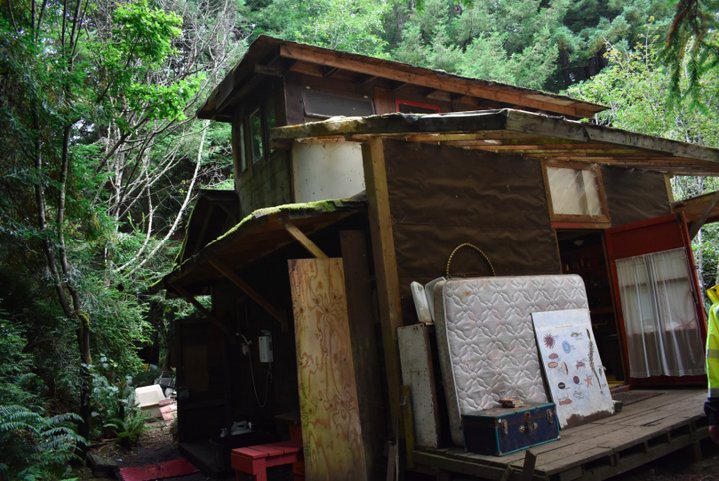

###
After the public comment period ended, Ford contested some of the statements. There was no contract between Garth and the county, he said; rather, “there was a settlement agreement that wasn’t complied with.”
The forested parcel is zoned agriculture general (AG), meaning no more than two housing units are allowed. “To have many, many, many families on the site is inconsistent with the zoning,” Ford said, adding that while the process has been “difficult and contentious,” the county still wants to work with Garth to get the parcel cleaned up and in compliance with county codes.
The board was being asked to approve an administrative civil penalty assessment of $62,431.79, which would cover a $45,000 in fines approved by Humboldt County Superior Court plus more than $17,000 in administrative staff costs accrued during the course of this saga.
Bohn made a motion to approve the assessment, and Third District Supervisor Mike Wilson seconded the motion. Madrone did not state a reason for his dissenting vote. A voicemail left Tuesday afternoon requesting more information was not immediately returned. Regardless, the rest of the board voted yes, approving the civil penalties.
CLICK TO MANAGE